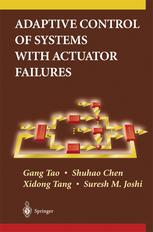

Most ebook files are in PDF format, so you can easily read them using various software such as Foxit Reader or directly on the Google Chrome browser.
Some ebook files are released by publishers in other formats such as .awz, .mobi, .epub, .fb2, etc. You may need to install specific software to read these formats on mobile/PC, such as Calibre.
Please read the tutorial at this link: https://ebookbell.com/faq
We offer FREE conversion to the popular formats you request; however, this may take some time. Therefore, right after payment, please email us, and we will try to provide the service as quickly as possible.
For some exceptional file formats or broken links (if any), please refrain from opening any disputes. Instead, email us first, and we will try to assist within a maximum of 6 hours.
EbookBell Team

4.3
18 reviewsWhen an actuator fails, chaos or calamity can often ensue.
It is because the actuator is the final step in the control chain, when the control system’s instructions are made physically real that failure can be so important and hard to compensate for. When the nature or location of the failure is unknown, the offsetting of consequent system uncertainties becomes even more awkward.
Adaptive Control of Systems with Actuator Failures centers on counteracting situations in which unknown control inputs become indeterminately unresponsive over an uncertain period of time by adapting the responses of remaining functional actuators. Both "lock-in-place" and varying-value failures are dealt with. The results presented demonstrate:
• the existence of nominal plant-model matching controller structures with associated matching conditions for all possible failure patterns;
• the choice of a desirable adaptive controller structure;
• derivation of novel error models in the presence of failures;
• the design of adaptive laws allowing controllers to respond to combinations of uncertainties stemming from activator failures and system parameters.
Adaptive Control of Systems with Actuator Failures will be of significance to control engineers generally and especially to both academics and industrial practitioners working on safety-critical systems or those in which full-blown fault identification and diagnosis is either too time consuming or too expensive.